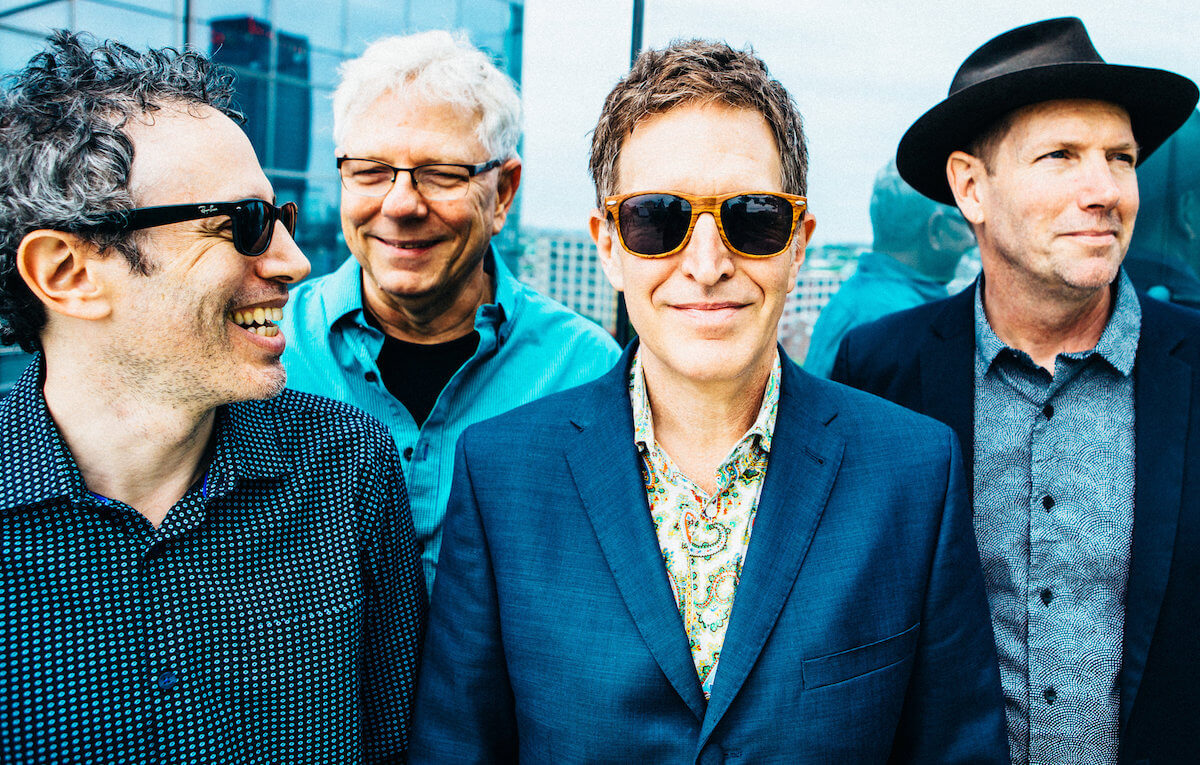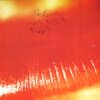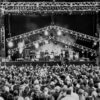Since reuniting in 2012, Paisley Underground veterans the Dream Syndicate have made the most adventurous music of their career. Avoiding the trap of trying to recreate past glories, they’ve found new ways to express themselves over the course of four albums.
UK audiences will get the chance to see the band in action on 10 dates in March, which remarkably will be the band’s first headline tour here, despite the fact that singer/guitarist Steve Wynn can readily identify the influence of British acts at crucial points in his own musical journey.
‘I was born in 1960 and was experiencing The Beatles in real time as a kid and it was exciting. They’re a big, big influence. Then 1977 turned my life upside down. Before then, I played guitar in bands in a garage but I thought we were going to stay in the garage,’ he says. ‘But once I heard The Pistols, The Clash, The Buzzcocks, The Jam and American bands like The Ramones and Talking Heads, that changed my whole idea about what my chances were of being a musician.’
Released from the garage, Steve set up the Dream Syndicate in 1981 with Karl Precoda (guitar) and Kendra Smith (bass). The band were completed when experienced drummer Dennis Duck was invited to a rehearsal and never left.
At that time Steve was again looking towards the UK for inspiration.
‘From ‘80 to ‘82 I was working at the Rhino Records store in LA and my day job was ordering underground rock imports for the store. So I was reading the NME and Melody Maker and keeping abreast of what was happening in the UK. I was obsessed with The Fall and Echo and the Bunnymen and particularly what was happening in Liverpool, Manchester and Glasgow.‘
Those influences are present, if not overtly, on the band’s incendiary debut album The Days of Wine and Roses, which quickly gained recognition on both sides of the Atlantic. The UK would have been the next logical destination for the band given Steve’s affinity for British music but fate had other ideas.
‘When we were on A&M back in ’84, just after (second album) Medicine Show came out, our label guy came to me and said, okay, we’ve got a choice for you – we will finance a big video or a European tour. Now back in those days, the MTV heyday, you could do really well with a video. But they also cost a lot of money while, for someone on our level, touring Europe was still very new and very primitive, surprisingly.’
A possible shortcut to stardom beckoned, yet Steve and band instead opted for the road less travelled. ‘I thought for about five seconds and very selfishly chose the European tour – mainly because I was 24 years old, I’d never set foot in Europe and I wanted to go there and have a vacation! We toured all over Europe, playing every country, not just the capital cities, and it was a great decision because it began what we still have today – a great following in Europe,’ he recalls.
After that fateful decision, the band released two further albums before they ground to something of a demoralised halt in 1989. Subsequently, Steve embarked on a successful solo career interspersed with a wide range of collaborations.
Fast forward to 2012 and it was the band’s European following which was key to the band’s reformation, Steve recounts. ‘I was an annual participant playing solo at a festival in Bilbao in Spain, a benefit concert for paediatric diseases put on by a friend of mine. Then in 2011 he said, hey, how about next year you bring a band to play? And I said, I’d love to do that. At the time I was playing with the Baseball Project and with my solo band, the Miracle Three, but neither band could do the festival because of various work commitments and other things. But, (laughs) I remembered I had another band, the Dream Syndicate who had not at that point played for 23 years. And I figured, why not? Immediately Mark (Walton, bass player since the mid-80s) and Dennis both said they were up for it.‘
With neither Precoda nor his replacement Paul B Cutler available for different reasons, Steve turned to Jason Victor, a trusted lieutenant from the last decade of his solo records, to play guitar.
‘He could play every Dream Syndicate song and probably had more of a fan’s connection to the band than any of us did. So, he was a perfect fit. And we just went ahead, did the festival and added a few more Spanish shows to see what would happen.’
What happened was that, as word spread, the band received more offers to play, first in Europe then at home in the US when Jeff Tweedy invited them to play at Wilco’s Solid Sound festival.
‘We were playing all over the place for about four years. But after a while we agreed that we didn’t want to be a nostalgia act any more. If we were going to keep going, we needed to do new songs. That began a period of recording and creating, which has been fantastic and surprising to us, because we became a new band with a vibe that was unique to what we’re doing right now.’
In a remarkable burst of creativity the reunited band released three new albums in less than 3 years.
‘We were so happy with How Did I Find Myself Here. We’d caught lightning in a jar and we lucked out. Second records are always weird and These Times was difficult in some ways. It took us a while to get where we were going, but I think we got there.’
Both albums broke new ground for the band, taking the songs in a far more psychedelic direction, but no-one was prepared for where that would lead the band next – a spontaneous, hour-long record with just five, trippy songs.
The funny thing about the These Times sessions, Steve explains, is that the band accidentally recorded the next record…
‘Stephen McCarthy from The Long Ryders had come by to say hi and, we said, well, since you’re here and since nobody’s really that tired, why not go and make some music? We maybe got started about one in the morning and played for 80 minutes straight without exchanging a word, without discussing what key the songs would be in, without a game plan even. We just played until we dropped at 2.30. From that point, it developed into a record that got edited and monkeyed around with, like a Miles Davis record in the 70s, and we made a record out of it.‘
Those three albums were issued by American indie Anti- but the label felt the relationship had run its course. Steve holds no hard feelings. ‘I’m grateful that they did those three but, at that point, I wasn’t excited about looking for a new label. Yet we didn’t want to put it out ourselves.’
The search for a new label led to the UK, a decision which would surely have met with the approval of the teenage Wynn.
‘Fire Records did the reissues of Days of Wine and Roses and Out of the Grey and my friend Pat Thomas, who works with them, said, why don’t you just do your new stuff there as well? It’s a very natural place for us to be because, not only are bands of our era on the label, but also friends like Howe Gelb and Come. And they also have a lot of new acts like Jane Weaver who I got turned on to because of Fire. She’s great.‘
Fourth comeback album Ultraviolet Battle Hymns and True Confessions was therefore issued on Fire last summer. Its ten songs saw the band return to more concise song structures, focussing on their melodic strengths yet retaining elements from the previous records such as a psychedelic sensibility and krautrock rhythms.
After successful European and U.S. tours last year, with the label’s backing, a full British tour was finally booked.
However, the line-up of the last decade won’t be playing this particular tour.
‘There’s nothing weird or bad, it’s just Jason, very simply, has got other commitments and couldn’t do it. So, I was faced with maybe having to cancel the tour which I did not want to do.‘
Instead, Steve recruited a familiar figure from the band’s early days.
‘Vicki Peterson from The Bangles goes back today one with us and has been a great friend for 40 plus years. And she knows the songs. So, there’s a lot of connection there.’
With another (temporary) vacancy filled, Steve asked two other friends from the band’s early days to join the tour.
‘Matt Piucci and Stephen Roback from the Rain Parade will open the shows and all these things mean this tour’s going to be a very unique event.’
In conclusion, looking back on the band’s last decade, Steve is proud of what the band have achieved.
‘If you had told me back then that we were gonna last for 10 years, tour the world and make a bunch of albums, I would have been very surprised. We didn’t do any of it with the idea of record labels or a career, yet here we are 10 years later!”
Dream Syndicate UK tour dates:
06 March Oxted, Barn Theatre
07 March Bristol, The Fleece
08 March Liverpool, District
09 March Leeds, Brudenell Social Club
10 March Glasgow, The Hug & Pint
11 March Glasgow, The Hug & Pint
12 March Newcastle upon Tyne, The Cluny
14 March Manchester, Band on the Wall
15 March London, The Lexington
16 March London, Colours




